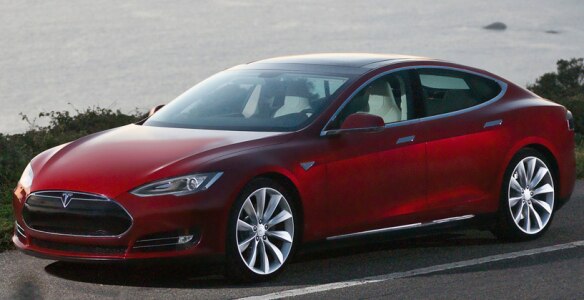Direct selling to consumer and a unique inventory management strategy
Tesla has been vocal in their rejection of the traditional franchise-dealer sales model. Preferring instead of selling directly to their consumers, the company argues that the laws prohibiting these transactions are outdated - and the consumer is bearing the brunt of the additional cost. A report published by Goldman Sachs, an investment bank, estimates that the savings for consumers in the direct-to-consumer model is around $2,225 for a $26,000 vehicle, or around 8.6%.
Cutting out the dealership rung of the supply chain has been a challenge - several states in America have filed petitions to shut Tesla down. Dealerships in New Jersey, Maryland, Texas and Georgia for instance, have effectively banned Tesla from selling directly to consumers. Despite these restrictions, the company continues to grow even in disputed areas - operating a workaround where customers can view the vehicles in showrooms, but must complete orders online or on the phone and have cars shipped in from elsewhere.
So what does selling directly to consumers mean for Tesla’s inventory management?
To try and minimise risk, they keep very little inventory, choosing instead to place most of their customers on a several month long waiting list. Tesla admits that there is little research on the impact of this sales model on consumer demand. So far, there’s been inadequate data to support any conclusion regarding the loss of business due to the wait time.
However, there are also significant upsides to this practice. By keeping little inventory and essentially producing on demand, Tesla can minimise the amount of capital and risk tied up with storing excess inventory. In addition, the wait encourages additional customisation, a premium that many of their paid customers might not have chosen to pay for if they could immediately drive a stock car off the lot.
By tying up fewer resources into storing inventory, Tesla is able to redirect capital to continue growing and refining other areas of their business.
According to their May 2013 Form 8-K, better inventory management contributed over $30 million in cash and reduced logistic costs. This is an impressive achievement considering sales in the same quarter was $526 million, meaning direct savings from better inventory management was around 5.3%.











